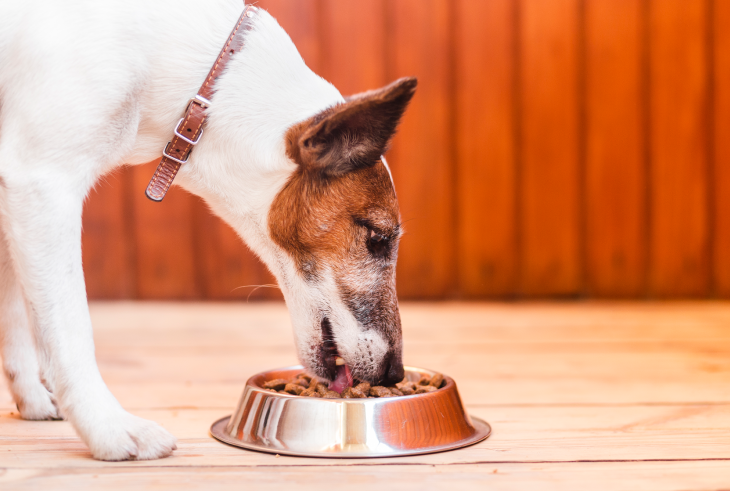Prebiotics for Dogs — A Dog Parent’s Primer
16 Aug 2021

It’s now well known that probiotics are friendly forms of bacteria that live in the intestines and can improve our health in several ways — and now, they’re not just for humans. Many veterinarians recommend probiotics for dogs for everything from treating digestive conditions to boosting the immune system. But in order to fully reap the benefits of probiotics for dogs, experts say prebiotics for dogs may be equally important.
According to Dr. Lisa Brienen, DVM, a certified veterinary homeopath practicing at Mercy Vet on Mercer Island, Washington, prebiotics are fibers that feed good bacteria in the gut. “Prebiotics improve intestinal health,” she agrees. “While probiotics are known to help introduce good bacteria into the dog’s gut, it’s the prebiotics that will act as a fertilizer for the good bacteria that’s there.”

Dr. Brienen uses gut supportive therapy regularly in her practice to promote overall health, particularly in young dogs and cats, and even to treat allergic or autoimmune disease and digestive disease. “When the intestines are leaky, proteins that wouldn’t normally move through the intestinal wall can get through and the body sees these as foreign invaders” she explains, noting that a dog’s body will naturally create antibodies to fight off these proteins, which can lead to skin, eye, ear, digestive and neurologic problems. “If you heal the leaky gut, you can solve these problems which is why prebiotics and probiotics can be helpful for the immune system and support health in all systems of the body,” she adds.
Therefore, Dr. Brienen notes that many fiber-rich foods can act as prebiotics for dogs. One of the first ones she uses in her practice is pumpkin or pumpkin powder, and she also recommends cooked yams as a fiber-rich source of prebiotics for dogs. “Pumpkin helps with intestinal health, whether the dog is dealing with diarrhea or constipation,” she explains. “Fiber slows down the intestinal transit time, absorbs fluid, lowers the pH and provides nutrients for beneficial bacterial.” Better yet, prebiotics aren’t as fragile as probiotics, in that they are not sensitive to temperature, pH or gut transit time, she notes.
Source : https://www.dogster.com/dog-food/prebiotics-for-dogs
Come and join us AT Pet fair Asia 2025 Booth No.V15 Hall 98 Bitec Bangna
Meet Thai Awesome Co., Ltd. and Team at Pet Fair SEASIA 2025 – Booth V15, Hall 98! Thai Awesome Co., Ltd. is excited to welcome all visitors interested in creating their own wet pet food brand! We offer full-service OEM solutions with a wide range of packaging options including cans, aluminum pouches, and trays. In addition to OEM services, we are also looking for distributors to join us under our in-house brands: Moochie, Vetmoo+, and Munnchie. Come visit us at Pet Fair SEASIA 2025, Booth V15, Hall 98, and discover exciting opportunities in the pet food industry!
7 tricks in adjusting your dog’s behavior to being potty trained!
Have you ever just chill, relax, but suddenly smell a weird odor, causing you to block your nostrils from your dog not defecating in the right place? Whether it's the floor, in the corner of the room, the rug, the legs of the table, the curtains, the bed, or our favorite set of sofas. Anyone who encounters this problem will definitely have a headache because in addition to the damage that has occurred, it’s followed by the issue of cleaning, which is quite difficult. Plus, the unpleasant smell as well. Many people may wonder, why is their dog not defecating in the right place? How do we fix this problem? This article has compiled solutions for you.
Are clothes necessary for dogs and cats? Which breeds are required to wear them?
When entering winter, we will see a variety of winter fashion out there, a variety of eye-catching colors, which is no different with pet’s fashion clothes that are equally bold. Seeing the choices of clothes picked for them is like bringing a small fashion week to the house. In addition, we are united in showing off their cuteness and adorableness, often seen on social media, but in fact, has anyone ever wondered how necessary those clothes are? Do dogs and cats really need to wear coats in winter? Let's find out.